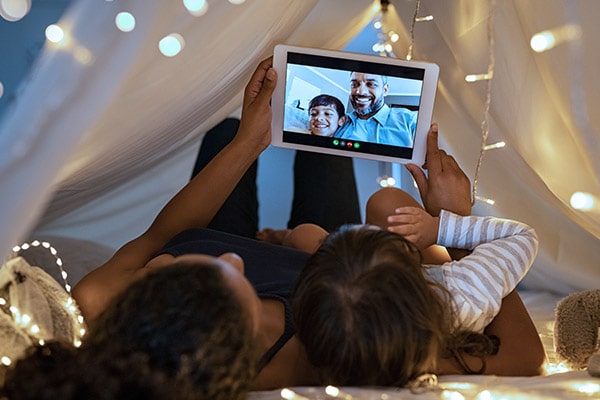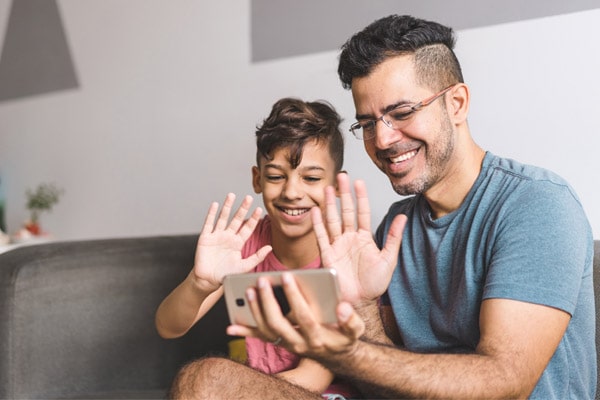How Video Calling Helps Co-Parents
Parents with joint custody use video calling apps to communicate with their children and with each other.
- 2 min read
- custody

Most co-parents would agree, having access to every possible means of communication with their child is beneficial when apart. Video calling apps have been a crucial resource for parents with joint custody for many years.
For many co-parents, being able to physically see their child when separated isn’t just a bonus, it’s a necessity
Video calls not only help parents communicate with their child effectively, but also give parents reassurance that their child is safe, happy, and healthy. Additionally, video calls allow co-parents to participate in special moments they wouldn’t otherwise be able to when away from their child. This includes things like watching their child participate in a sport or open a Christmas gift.
Co-parents have been using a number of video calling apps to connect with their kids over the years. Some of the most commonly used tools include Houseparty, FaceTime, Bunch, Airtime, Booyah, Zoom, and Skype. Though many parents are using services like these for free, these apps don’t offer some of the capabilities that many co-parents need, such as secure, accountable calls.

TalkingParents now offers Video Calling
TalkingParents is the first co-parenting communication service to provide you, your co-parent, and your children with access to secure and accountable video communication. Similar to our other features, all video calls are recorded as part of the Accountable Calling℠ Record.
You can download all video calls made through TalkingParents, and a transcript of every call is available to you if needed. Another helpful tool you have access to through Video Calling is video voicemail. This allows you, your co-parent, and your child to leave video messages for each other if desired. Some of the tips and best practices we have for you include the following:
- Opt for video calls when possible. If you are calling to communicate with your child while they are with your co-parent, video calls can be far superior to phone calls. Your child will be more engaged when they can see your face.
- Try removing distractions so that both parties can remain engaged in the conversation. Television, radio, and video games in the background will increase tension and frustration. Because Accountable Calling℠ is recorded, outside noises can also make it difficult to generate call transcripts.
- You and your co-parent should be respectful of each other’s time. Unless there is an urgent need, you should not initiate an unexpected recorded call. Using our Shared Calendar, try setting up a scheduled time when you are both available to talk.
- Be mindful that call recordings pick up on not only what is said, but how it is said. Studies show that people communicate far more information with their tone of voice and body language than with the actual words they speak. When on a call with your co-parent, be mindful that they may pay more attention to how you say things rather than what you say.

As with all other aspects of our service, you do not have to share your phone number with your co-parent to use Video Calling
This allows you and your co-parent to video chat with each other and with your kids, without disclosing private information to one another. Our paid subscription users have full access to Video Calling, allowing them to make and receive recorded Video Calls. Sign up for TalkingParents or sign in to your account to upgrade to a paid subscription now.